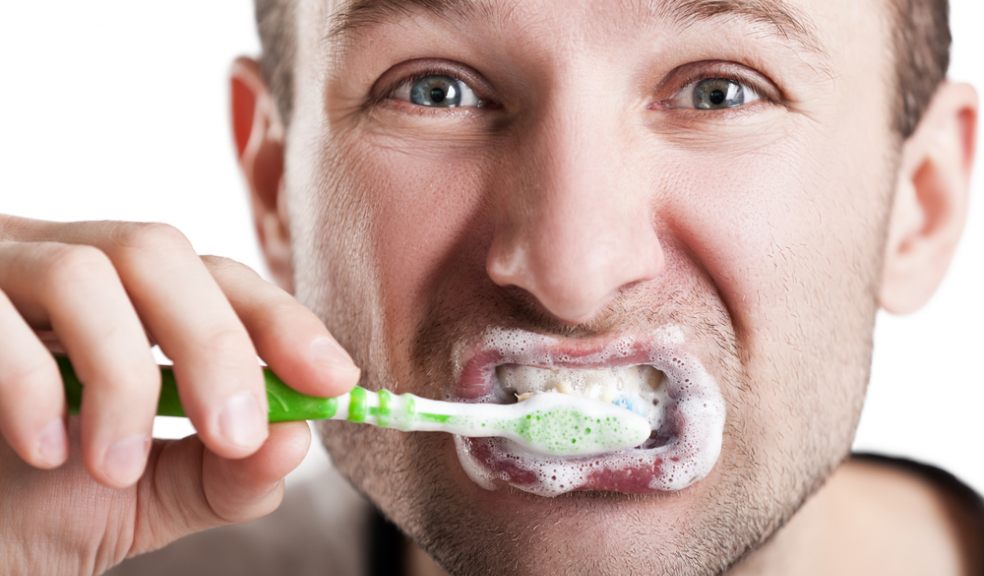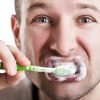
Thousands ‘too tired’ to clean their teeth
A new study reveals that thousands of people could be putting their oral health at risk by not brushing their teeth in the evening because they are too tired.
The survey of 10,000 UK adults, commissioned by GSK, as part of its Love Your Mouth campaign (www.loveyourmouth.co.uk) found that 45% of people questioned say they have gone to bed without brushing their teeth, which could increase their chances of cavities, gum disease and even tooth loss.
When asked why they don’t stick to a daily oral healthcare regime, 40% of respondents blamed being too tired, 30% said it’s because they’re lazy and 28% admitted they forget to brush or floss.
Natty Burgess, a London Dental Practitioner comments: “People think that missing one brush won’t be a problem, but over time a lack of good hygiene can cause a whole host of unwanted oral health conditions.
"Not brushing at least twice a day can cause the build-up of plaque and calculus (hardened plaque), as well as tooth decay which can lead to sensitivity and cavities that require fillings. In a 24 hour period, we are awake for around 17 hours, equivalent to 1,020 minutes. You only need to spend around four minutes brushing, and a couple of extra minutes per day flossing to avoid having problems.”
Despite a staggering 91% saying they are aware that poor oral care can lead to a decline in the health of teeth and gums, the research uncovered that almost one in five people surveyed (18%) said they just brush with water without using toothpaste, and 14%1 brush their teeth using a finger!
Natty continues: “It’s important to brush using a toothpaste as the special ingredients help to maintain healthy teeth. Brushing with your finger introduces new bacteria into your mouth from whatever you were touching last so will only hinder your oral hygiene. Toothbrushes have special soft bristles with rounded ends that help to reach tricky corners that your finger won’t.”
Further data shows that only 24% of those that took part in the research said they floss their teeth as part of their daily routine with 44% admitting they could take better care of their oral health.
Based on these new findings, it’s unsurprising that 67% of respondents said they have experienced tooth decay or cavities and 29% of those people confessed they have six or more fillings.
“People tend to develop cavities due to a combination of a poor diet and bad oral hygiene”, adds Natty.
“Foods rich in sugars are increasingly part of our diet and it’s these types of foods that increase levels of bacteria that stay in the mouth until cleansed. Your teeth and smile play a very important role as part of your face. They are the first thing people look at when you start to speak, and first impressions count for a lot. Your teeth help you to chew and break up foods and this starts a good digestion process in the body so it’s vital to look after your oral health and give your mouth some love!”
What can you do to brush up your oral health?
Natty reveal’s her top tips for maintaining happy and healthy teeth:
1. Brush your teeth twice a day for at least two minutes each time.
The ideal times to brush your teeth are before bedtime and at least once more during the day (first thing in the morning is recommended). If you choose to brush after a meal or drink, wait around 40 minutes before your brush as this helps to avoid rubbing off the enamel which is softened after consuming acidic foods and drinks.
2. Use a suitable toothpaste
Most people are never taught how to brush or floss properly (if at all), and aren’t aware that you need to use an appropriate toothpaste.
3. Use floss or other interdental cleaning aids.
Ask your dentist to advise you on the right aid and size for your mouth. Your toothbrush will not reach areas where the teeth contact each other, so if you don’t use interdental cleaning products, you’re not completely cleaning your mouth and this can lead to decay, inflammation of gums and many other issues. It is in the gaps between your teeth where you mainly trap food when you eat. Regular flossing especially at night is imperative in maintaining a happy and healthy mouth.
4. Use mouthwash, at least once a day at a different time from brushing, eg after lunch.
Mouthwash helps protect your mouth between brushing by maintaining lower levels of bacteria. Importantly though, mouthwash only compliments brushing and flossing but does not replace either. Mouthwash helps rinse out food particles from your mouth and helps deter bad breath as it is designed to leave your mouth with a fresh (normally minty) smell. For best results, no food or drink should be consumed for 30 minutes after it is used. Sploosh well, spit and don’t rinse.
5. Spit, don’t rinse. Leaving toothpaste in your mouth helps protect your teeth.
Fluoride is a mineral which helps to strengthen tooth enamel, helps increase resistance to tooth decay and can also reduce the amount of acid produced by bacteria in your mouth. Therefore try not to rinse your mouth out with water after brushing as you’ll wash away all the fluoride.”
6. Use disclosing tablets to see how well you are cleaning your teeth.
They will temporarily stain any plaque so you can see what areas you’re missing.
7. Use a small headed toothbrush with soft, rounded bristles and a comfortable easy grip handle.
The approach should be to slowly and carefully follow a routine ensuring that they cover all areas, making sure no food remains in the mouth, and that no tooth has been missed.”
8. Prevention is key
Ask your dentist to teach you how to maintain a routine with correct oral hygiene procedures suitable for your individual needs as this is the key to long term success. Historically, people have grown up watching their parents put a toothbrush in their mouth and simply brushing around, assuming it is quick and that’s all that is needed. I regularly encourage my patients to go back to the basics and start with easy instructions on how to use a toothbrush and floss properly.
9. Make brushing part of your bedtime routine
It can help if you connect the routine of brushing to the last thing you do before sleeping. If you like to take a relaxing bath or shower before bed, connect brushing your teeth with this relaxing part of your routine. To make sure you don’t forget to brush, it’s a good idea to set at least two daily reminder alarms on your mobile.
10. Visit your dentist for regular professional cleaning and check-ups
If you notice any unexpected changes in your gums or teeth (such as bleeding, redness or sensitivity), or feel something just isn’t right in your mouth (perhaps a lump, sharp edge on a tooth or other pain), book an appointment as soon as possible before the problem becomes bigger and painful. Small issues will regularly get sorted out easily and relatively cheaply by a dentist. The longer you leave a problem, the more time, effort and cost it will take to deal with, and you may suffer unnecessarily and for no good reason in the meantime.
Visit LoveYourMouth.co.uk to take the ‘Love Your Mouth Challenge’ and find out how you can improve your oral health.














